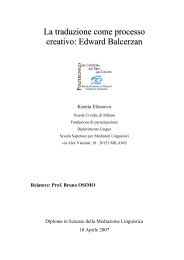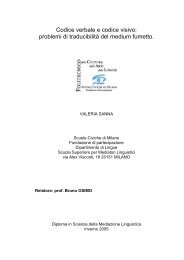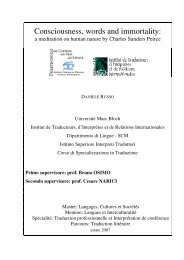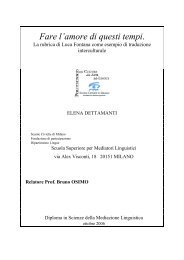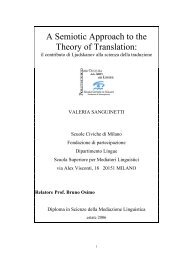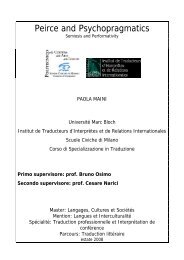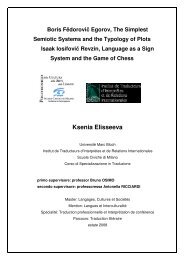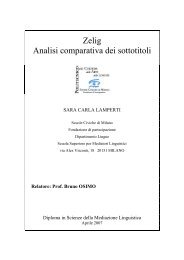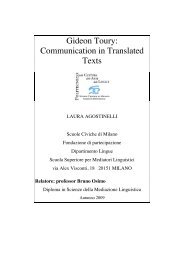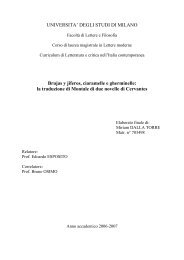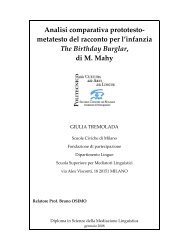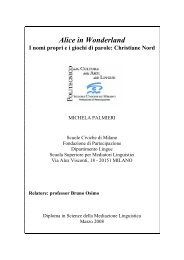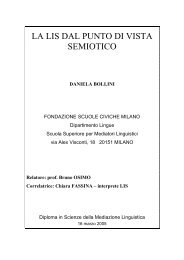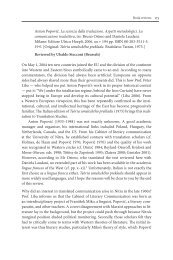Relatore: Professor Bruno OSIMO - Bruno Osimo, traduzioni ...
Relatore: Professor Bruno OSIMO - Bruno Osimo, traduzioni ...
Relatore: Professor Bruno OSIMO - Bruno Osimo, traduzioni ...
You also want an ePaper? Increase the reach of your titles
YUMPU automatically turns print PDFs into web optimized ePapers that Google loves.
predefined answers from which one or more is selected (Someren, Barnard<br />
and Sandberg 1994).<br />
A final class of methods involves unstructured verbal reports of problem<br />
solving, which can be obtained in different ways.<br />
2. 1. DIFFERENT VERBALIZING PROCEDURES<br />
“It is assumed that those mental activities which are dealt with in<br />
working memory (i.e. which are to some degree conscious) can be verbalized"<br />
(Jääskeläinen 1999: 62).<br />
According to Ericsson and Simon (1984) a distinction should be made<br />
between various kinds of verbal report procedures (or introspective methods),<br />
and particularly between classical introspective reports, retrospective<br />
responses to specific probes and think-aloud protocols. This distinction is<br />
crucial in determining the reliability and the validity of these methods of data<br />
collection (Jääskeläinen 1999).<br />
2. 1. 1. INTROSPECTION<br />
Classic introspection consists in instructing the subject to report his<br />
thoughts at intermediate points of the problem-solving task, which are chosen<br />
by him. As used by psychologists in the 1920s and 1930s, researchers also ask<br />
the subject to give an accurate, complete and coherent report on his cognitive<br />
processes. As a result, introspective reports involve the use of psychological<br />
terminology and interpretation by the subject; for this reason, they are also<br />
more subject to memory errors and misinterpretations than other methods<br />
(Someren, Barnard and Sandberg 1994).<br />
The problem involved is that “the informant is also expected to act as the<br />
analyst/researcher. Consequently, both the data and the analysis are<br />
subjective” (Jääskeläinen 1999: 63); there is no objectivity in the sense of the<br />
object of research being independent of the researcher.<br />
2. 1. 2. RETROSPECTION<br />
In retrospective responses to specific probes subjects are invited to<br />
perform a task and afterwards they are asked questions about their behavior<br />
8



